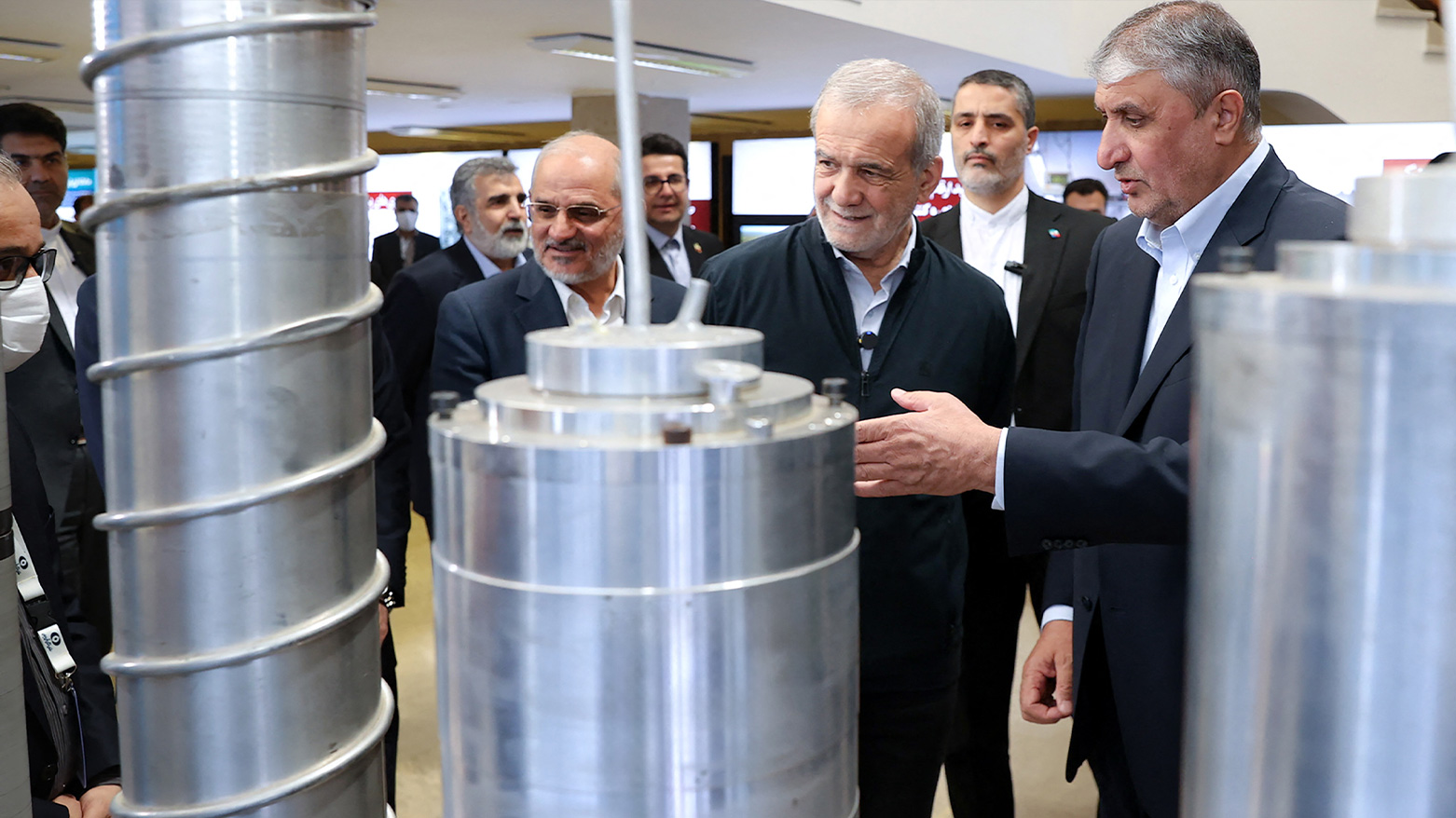Nuclear-Only Diplomacy: Iran Limits U.S. Talks to Sanctions, Enrichment
While the precise location of the upcoming negotiations remains under discussion, the message from Tehran is unequivocal: Iran will not entertain dialogue on dismantling its missile systems or curbing the activities of its proxy networks operating across the Middle East.

By Kamaran Aziz
ERBIL (Kurdistan24) — Iran's Ministry of Foreign Affairs announced on Sunday that the Islamic Republic will resume indirect negotiations with the United States by the end of next week, focusing exclusively on nuclear issues and the lifting of sanctions. The talks, to be mediated by the Sultanate of Oman, mark a renewed attempt to revive nuclear diplomacy, but Tehran's deliberate refusal to address broader security concerns, including its regional proxies and ballistic missile program, has raised alarm among analysts.
Ismail Baqai, spokesperson for Iran's Foreign Ministry, told state television that "negotiations will proceed indirectly with Oman's mediation," and clarified, "the talks will only be about nuclear issues and lifting sanctions." While the precise location of the upcoming negotiations remains under discussion, the message from Tehran is unequivocal: Iran will not entertain dialogue on dismantling its missile systems or curbing the activities of its proxy networks operating across the Middle East.
According to a report by The New York Times, Iran insisted that its regional activities, including support for groups like Hezbollah and the Houthis, as well as its missile program, remain off the table. This aligns with statements from Iranian officials that the talks will focus solely on reviving the 2015 nuclear deal, known as the Joint Comprehensive Plan of Action (JCPOA), and lifting U.S. sanctions.
Saturday, April 12, high-level indirect talks were held in Muscat between Iranian Foreign Minister Abbas Araghchi and U.S. Special Envoy Steve Witkoff. The Omani foreign minister served as an intermediary as the two delegations sat in separate rooms. Later, Araghchi confirmed on social media platform X that the discussions were conducted in a "positive atmosphere and with mutual respect." He noted that Iran had clearly presented its position and that both parties agreed to continue talks in the coming days.
Witkoff also described the talks as constructive, stating he would return to Washington to consult with the Trump administration. According to The Wall Street Journal, the Muscat meeting was the highest-level U.S.-Iran diplomatic encounter in years and served as a foundational step toward setting parameters for potential future talks.
The Journal reported that Iran's proposals largely reflected the terms of the 2015 nuclear agreement from which the Trump administration withdrew in 2018. Tehran is seeking swift sanctions relief, including access to billions in frozen assets and a halt to U.S. pressure on Iranian oil exports to China. In return, Iran has expressed willingness to return to enrichment limits set by the JCPOA, though it rejects any demand to dismantle its nuclear infrastructure.
Critically, both The New York Times and Al-Monitor confirmed that Iran dictated the narrow scope of the agenda. As one Iranian official told Al-Monitor, "The talks did not address issues such as Iran's missile program or its support for regional proxy groups."
A brief face-to-face exchange between Araghchi and Witkoff, facilitated by Oman’s foreign minister, drew significant backlash within Iran. Hardline elements in Tehran denounced the interaction as a betrayal, with outlets like Raja News accusing Araghchi of "shaking hands with the devil."
From Washington’s perspective, Witkoff told The Wall Street Journal that the administration's red line remains preventing Iran from weaponizing its nuclear capability, not necessarily ending enrichment altogether. The envoy emphasized that the goal of the Muscat meeting was to build trust and define the scope of upcoming negotiations.
Despite the constructive tone, key challenges remain. The Sunday Times noted that Iran’s nuclear program has advanced significantly since 2018, with enough enriched uranium stockpiled to potentially produce multiple nuclear weapons. Israel, meanwhile, maintains that only full elimination of Iran’s program is acceptable.
Iran's economy, battered by sanctions, is another factor driving diplomacy. According to The Wall Street Journal, Iran’s currency has lost 95% of its value since the 2015 deal, inflation exceeds 30%, and energy shortages have crippled major sectors.
President Trump, who previously pursued a "maximum pressure" campaign, now appears eager for a diplomatic victory. As The Times and The New York Times reported, Trump sent a letter to Ayatollah Ali Khamenei expressing a desire for direct negotiations. In return, Khamenei authorized renewed engagement, with conditions.
As talks continue, a central question looms: will the U.S. push to expand the dialogue beyond nuclear issues, or will it accept Iran’s narrow framework in exchange for partial concessions? For now, Tehran appears to have set the terms, focusing strictly on sanctions relief for nuclear compliance, while keeping its missile arsenal and proxies off-limits.
The next round of discussions, scheduled for Saturday, will reveal whether both sides can move beyond symbolic gestures toward a durable framework. As Ali Vaez of the International Crisis Group told The New York Times, "If dismantling was the floor for the U.S. team, the ceiling would have collapsed on these negotiations."
For the moment, diplomacy continues—but under Iran’s conditions.
